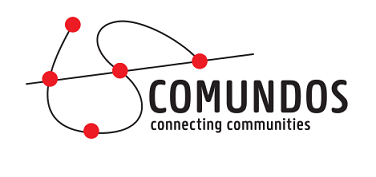Du riz, pas des balles
Faim zéro est le deuxième objectif durable de l'UNESCO. Comment se fait-il que de nombreux AGRICULTEURS, qui assurent la sécurité alimentaire du monde, finissent eux-mêmes par souffrir de la faim et soient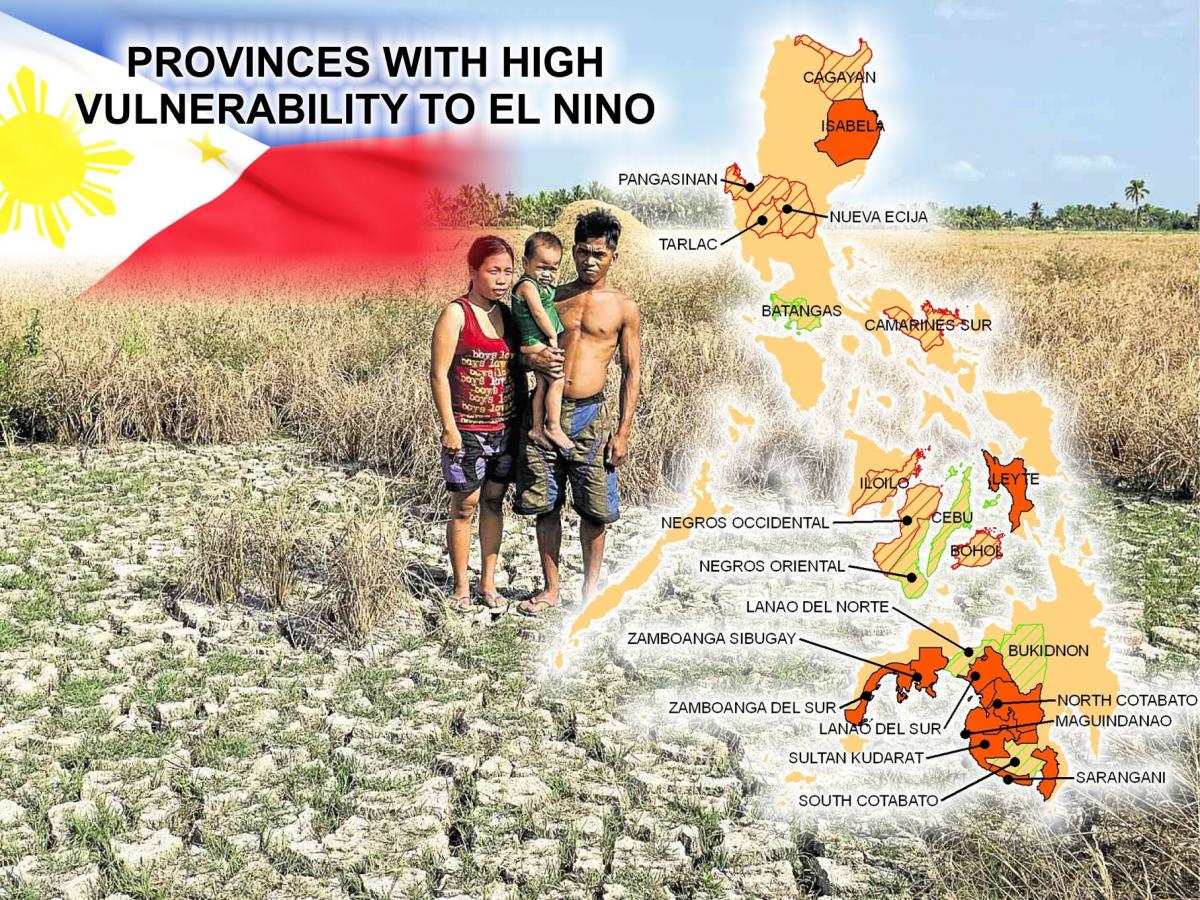 victimes de violations des droits de l'homme ? Un tel paradoxe est la lutte meurtrière des agriculteurs de Kidapawan en mars 2016 dans mon pays natal, les Philippines.
victimes de violations des droits de l'homme ? Un tel paradoxe est la lutte meurtrière des agriculteurs de Kidapawan en mars 2016 dans mon pays natal, les Philippines.
Notre situation tropicale nous rend les plus vulnérables aux aléas climatiques. Depuis novembre 2015, El Nino a provoqué pendant cinq mois un courant d’air étouffant.
Notre peuple mourait de faim. Les agriculteurs souffraient particulièrement de la perte de revenus et de la faim. Désespérés, ils ont demandé de la nourriture devant l'Autorité nationale de l'alimentation mais ont été refoulés. Des semences résistantes à la sécheresse n’ont été libérées qu’en février, mais il était trop tard.
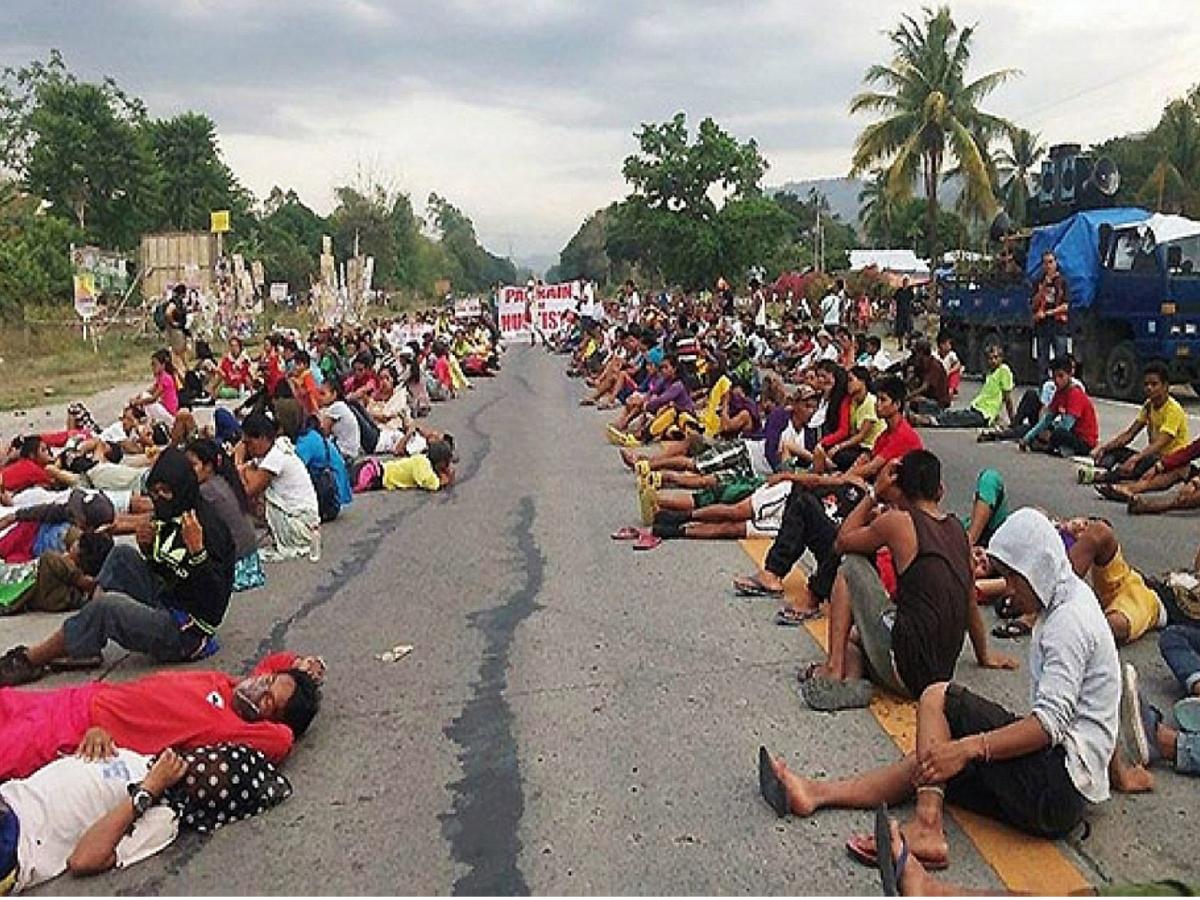 Finalement, le 29 mars 2016, plus de 500 agriculteurs de Kidapawan et 6 000 habitants sont descendus dans les rues sous un soleil de plomb pour exiger de la nourriture du gouvernement. Mais le gouverneur Taliño-Mendoza, qui avait promis de donner du riz, a refusé de l'aider pour des raisons administratives. Le 30 mars à 10 heures, le permis de manifester a expiré. La police est intervenue violemment pour disperser la manifestation, utilisant des matraques, des pierres, des canons à eau et enfin des fusils. Trois agriculteurs ont été tués, 16 blessés et 76 arrêtés.
Finalement, le 29 mars 2016, plus de 500 agriculteurs de Kidapawan et 6 000 habitants sont descendus dans les rues sous un soleil de plomb pour exiger de la nourriture du gouvernement. Mais le gouverneur Taliño-Mendoza, qui avait promis de donner du riz, a refusé de l'aider pour des raisons administratives. Le 30 mars à 10 heures, le permis de manifester a expiré. La police est intervenue violemment pour disperser la manifestation, utilisant des matraques, des pierres, des canons à eau et enfin des fusils. Trois agriculteurs ont été tués, 16 blessés et 76 arrêtés.
Les communautés agricoles produisent 85 % de la nourriture mondiale, mais elles sont largement sous-représentées en matière de droits humains. Jusqu’à présent, le seul traité international qui les concerne est le Traité international sur les semences, mais les semences ne sont pas le seul besoin. Face à l’aggravation du changement climatique, nous devons accroître notre soutien MAINTENANT et défendre ceux-là mêmes qui nous nourrissent, sinon cette histoire se répétera dans davantage de pays.
Comment utiliser cette histoire en classe ?
Les auteurs de la vidéo ont créé du matériel didactique (cliquez pour télécharger ou trouvez-le ci-dessous) pour entamer un dialogue constructif.
How to use this story in a classroom?
The authors of the video created didactical material (click to download or find it below) to start a constructive dialogue.
In words of the authors:
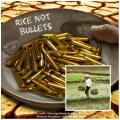
"In today’s techno-savvy generation, integrating the use of digital films in education is one powerful way not just to raise awareness on certain issues and worthwhile causes but also to keep the participants engaged, and to move them into doing concrete action.
Last January 11, 2018, a team of Postgraduate International Educating Class (PIEC) students from UCLL, Belgium --- Eliza Cody, Danette Garcia and Rita Ebong --- conducted an “Info-Session and Workshop” entitled: “Rice Not Bullets: Defending the Human Rights of Farmers” as their Internship Project. This was part of the school’s Film and Workshop Festival at Pangaea on that day, which was joined by 3 other teams tackling various themes.
With the help of Comundos, the team created “Rice Not Bullets”, a timely, thought-provoking, and moving documentary film on the plight of farmers in crisis. Essentially, this digital short film underscores how human rights is complicated by worsening climate change. After experiencing severe drought for months, the starving Kidapawan farmers in the Philippines went to the streets on March 29, 2016 and blocked the road under the scorching heat of the sun to desperately beg for rice from the government. Rice Not Bullets brings a local story to the global community, addressing the very reality faced by farmers worldwide. A symbiotic relationship exists between human rights, climate and culture and the plight of farmers represents this triad complexity. Putting faces to these farmers shows the true urgency and importance of the UNESCO’s Sustainable Development Goal of “Zero Hunger”.
The timeliness of “Rice Not Bullets” creates a sense of urgency amongst viewers to act and stand up for those in need. This story is highly relevant to all watching because farmers are the backbone our economic system and provide food security to all of us. As a didactical material, the film makes the viewer feel empowered, as if they need to take action immediately.
Through the Info-Session and Workshop, the team raised awareness on the global significance of the farmers, connected the story to the viewers themselves through the value of Care and Empowerment, and finally, helped the participants identify tangible ways to improve human rights for farmers locally and internationally whether as individual or as a group.
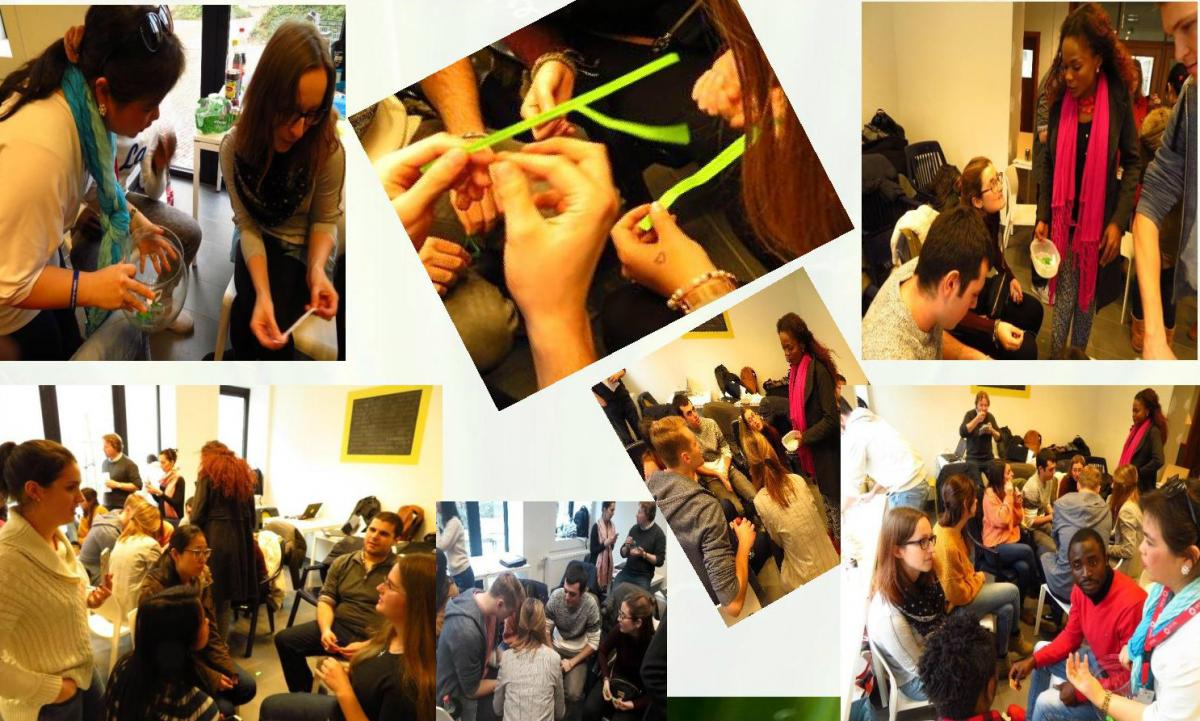
The workshop ended with the “Act Now Campaign”, where participants were encouraged to help spread awareness to support the farmers worldwide by sharing the videolink of “Rice Not Bullets ” film. We invite you, dear readers, to please kindly also watch and share the above videolink to raise awareness on the plight of the farmers, as a small way of giving back our gratitude to them as food supplier.
We would like to share here our Film Flyer Guide, plus the Handbook and Viewing Guide, which is a standalone Instructional Guide for teachers/lecturers/educators who would be viewing our film “Rice Not Bullets” with students. It contains an overview of the main topics, talking points for each topic and guided questions to use in class. Alternatively, this handbook can also be used by others simply to guide their view and answer questions about the film.
Here are some comments from Info-Session and Workshop Pangaea:
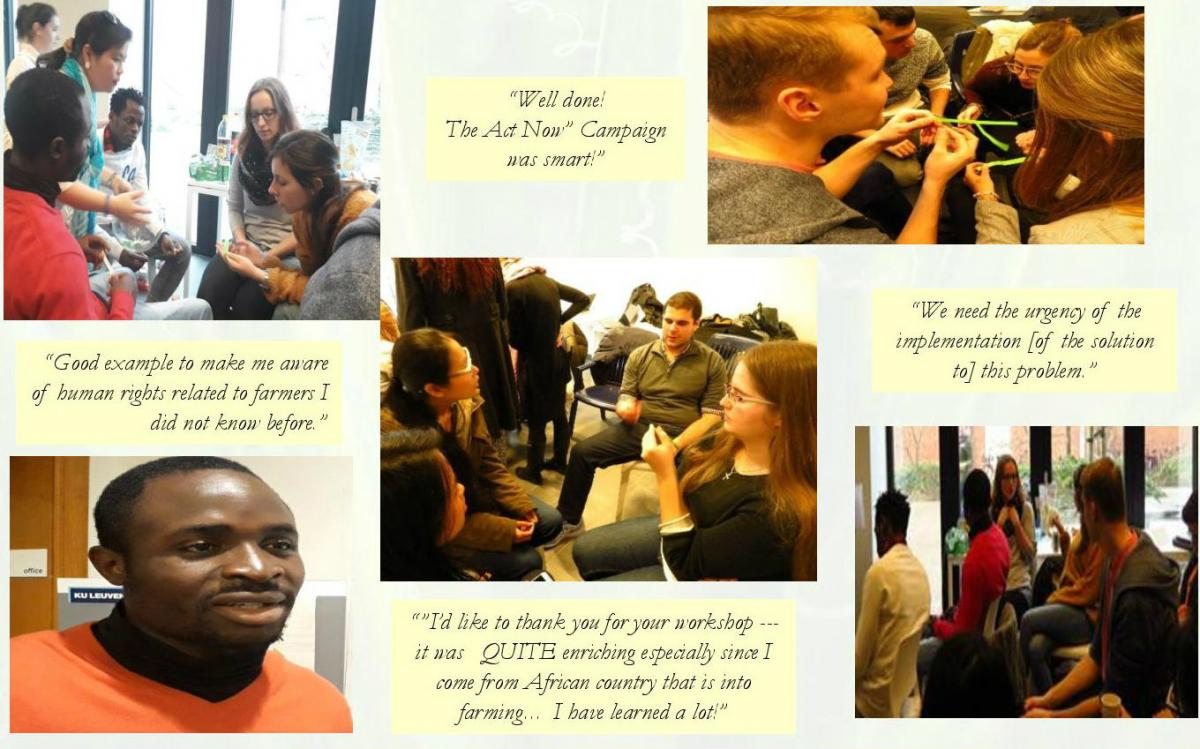
Interviews were also conducted before the workshop to gauge general awareness on the issues of the farmers, as well as after the session to recap lessons learned:
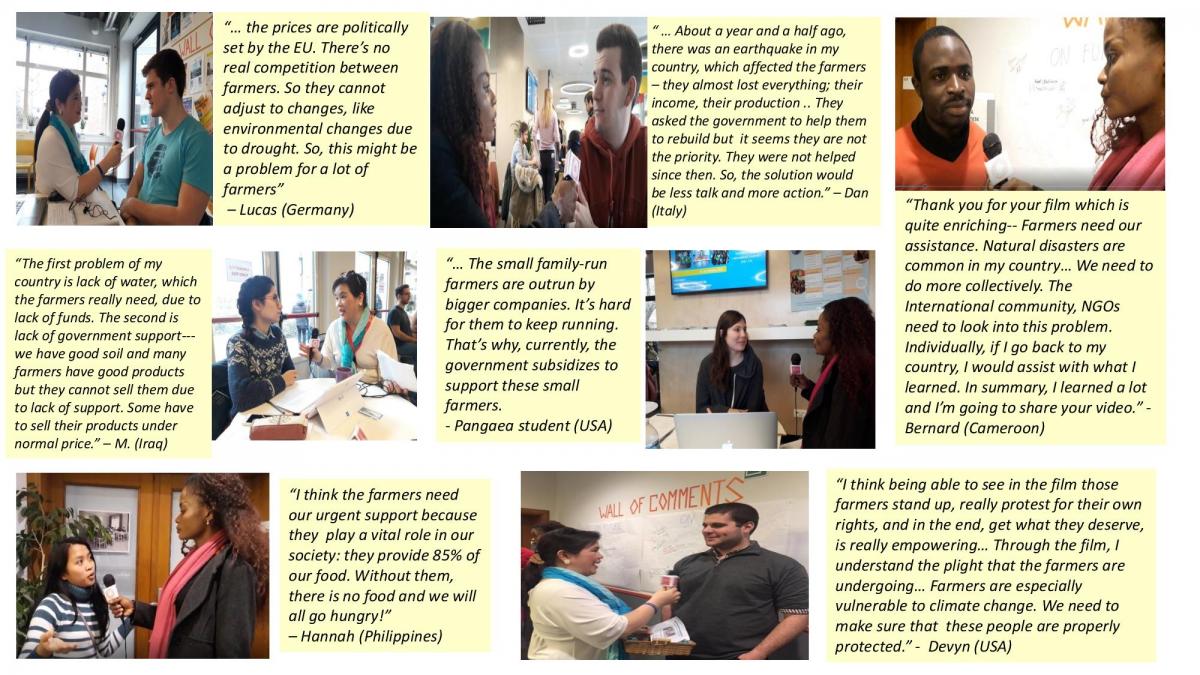
The team expressed their heartfelt thanks to Comundos, particularly to Mr. Bart Vetsuypens, for imparting the know-how on how to make compelling digital films using 250 powerful words in only 2.5 minutes. Special thanks also to UCLL Internship and Project Management Lecturer Dima Bou Mosleh for her guidance and support, to UCLL-PIEC Fall Semester 2017-2018 classmates, and to all the participants at Pangaea."
Un cadeau pour Comundos
Depuis des années, Comundos aide les communautés isolées à travers le monde en leur enseignant la pensée critique, l'éducation aux médias et l'utilisation des technologies de la communication. Pour y parvenir, nous avons besoin de votre soutien pour les ordinateurs, les traductions, les cours et la gestion des médias sociaux.
Nous vous remercions d’avance !
Comundos - Banque Crelan
BE11 1030 2973 8248
